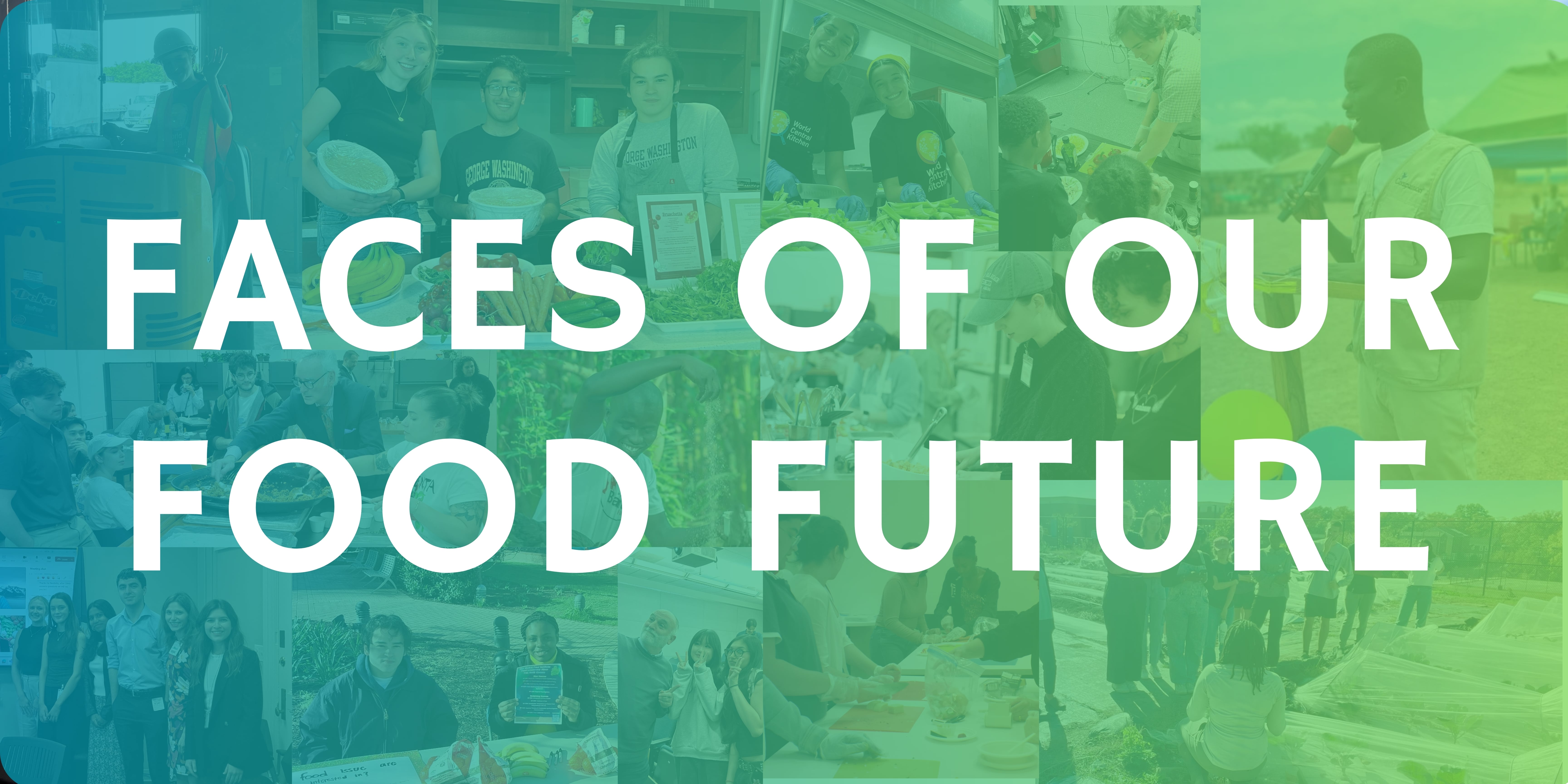Faces of Our Food Future: Two GW students share their stores from the inaugural cohort of the Humanitarian Internship Program Pilot

The Summer of 2025 was the inaugural year for GW’s Humanitarian Internship Program Pilot (HIPP). HIPP offers GW students a 10-week professional internship opportunity to contribute to global and local humanitarian efforts. The program partners with leading organizations addressing critical challenges across the humanitarian sector. Two of the interns, Callie
Hoffman and Phillip Yamoah Appiah, are inspiring examples of GW’s emerging food leaders.
Callie Hoffman, a rising junior studying human services and social justice, joined HIPP in hopes of contributing to nonprofit supply chain operations. Callie, who already had extensive field experience, was paired with World Central Kitchen (WCK). WCK is an international food aid organization founded by Chef José Andrés, HON ‘14, who is also the co-founder of the Global Food Institute at GW (GFI). Working with WCK’s relief team helped Callie to gain a unique understanding of the behind-the-scenes, grassroots efforts required to feed people in crisis.
“My whole life I’ve been volunteering, but I’ve never understood what it actually takes to run a nonprofit – especially on the supply chain side. It’s really valuable to know the steps everyone has done to get you to [activation day],” said Callie.
Callie helped manage warehouse inventory, set up aid kits, participated in community outreach initiatives, and formed project information sheets designed to streamline humanitarian aid activation, which is the intricate process of getting food to people. Her experience also involved developing technical skills – like learning to operate a forklift.
Her most valuable lesson was understanding the initiative and creative thinking required to address complex issues that were frequently dire humanitarian emergencies. Each community seeking aid had their own unique set of needs, challenges, and considerations to take into account prior to activation. Learning how to center each community’s needs was integral to her internship experience. Callie will prioritize this approach in her future – which she hopes will involve international community development work.
“WCK’s mission is to feed people with dignity and respect. We’re showing up to this place to feed people, and give them what they need at this time, but it’s also a great opportunity to give a community the tools to have a sustainable future. We really take into consideration things like what food preferences people have, how we can support the local economy and give jobs to people who need income, and even things like creating eco-friendly packaging for communities who prioritize low-waste,” added Callie.
Milken Institute School of Public Health graduate student Phillip Yamoah Appiah was paired with Project HOPE, an international humanitarian organization focusing on addressing health disparities across the globe. Phillip joined their data management and evaluation team and worked with data collected in the field, including the who/what/when/where/why of our global hunger crisis. His work, along with the rest of the data management team, was crucial in determining which initiatives worked, and which ones did not – helping Project HOPE concentrate their resources and efforts where it mattered most.
Working with colleagues from around the world, Phillip was exposed to different communication styles, task management procedures, and general office cultures. He believes this experience will set him up for success in his future career, which he hopes will involve working with new communities and cultures.
“I can really say I’ve come out of this experience with [an awareness of] different work cultures, strategic priorities, and the tools that will make me successful in the workplace, like interpersonal skills and communication,” said Phillip.
In addition to their individual experiences, Callie and Phillip valued the peer learning and mentorship offered by HIPP. HIPP interns participated in bi-weekly peer meetings which included professional development activities and workshops. The interns had the opportunity to share the technical, discipline-specific skills they each learned, as well as individual lessons and moments of growth. Both Callie and Phillip would recommend HIPP to GW students looking to gain experience with a humanitarian organization.

